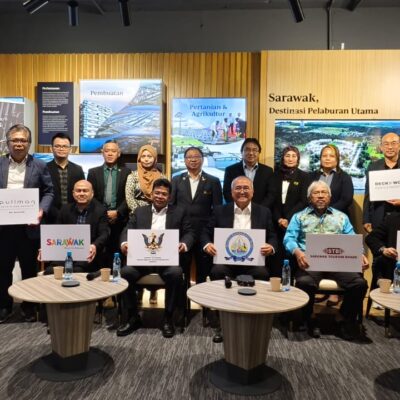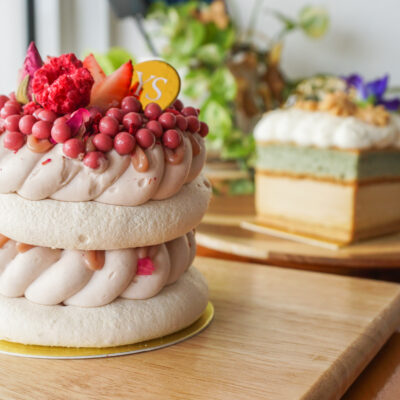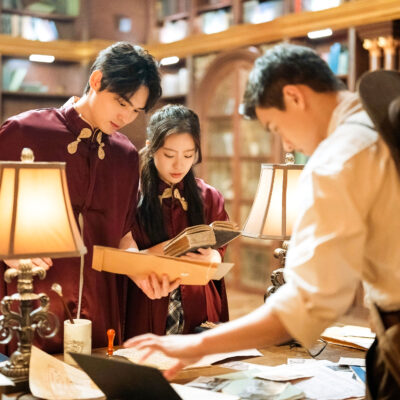A life’s work summed up in one room; Melia Linggi and her family have worked tirelessly to preserve and perpetuate the Iban culture through the Tun Jugah Foundation, an organisation dedicated to the history and culture of her people through artefact preservation, cultural research and showcases, aids well as administering funds for educational, medicinal, and charitable purposes, all for the public welfare of the Iban. The space though officially classified as a museum, is essentially an office floor space on the fourth floor of the Tun Jugah Tower incredibly organised and curated with an immense archive of Iban and Sarawakian history. Pua Kumbu, the textiles of Iban dreams, is one of the main focus points here.
As the second largest ethnic group originating from Borneo, they’re also known as Dayak or Sea-Dayak, referring not to the ocean but to the upland riverine areas of the jungle which they historically populated. Most Iban however, no longer live amongst the natural world their culture reveres; the younger generations having migrated to cities and other towns in search of the modern world’s new king — cash. Modern Pua Kumbu has been adapted too, taking on inspiration from other influences like nature or contemporary fashion trends. Melia is refreshingly adaptive — a sneak peek at an interiors collection just completed for clients in London show table runners and fabrics that are clearly weaved in the traditional style of the Iban, yet feel fresh and ready for any dining table of the 21st century. Her grandfather, Tun Datuk Patinggi Temenggong Jugah anak Barieng, also known as Tun Jugah, was a Malaysian politician of Iban descent from the state of Sarawak.
For more than 55 years, he was also the Paramount Chief of the Iban people who affectionately called him “Apai” , the Iban term for ‘father’. Tun Jugah is undoubtedly one of the most prominent Iban of Borneo’s history for his fundamental role in bringing Sarawak into the formation of the Federation of Malaysia of which he was one of the three key signatories on the Malaysia Agreement 1963 in London. This pivotal representation of the island’s original inhabitants not only provided a critical eye on an underrepresented demographic, but also created an definitive statement that the tribes of Borneo had significant voice in a modernising world. The Tun Jugah Foundation was built to honour his life, and in the process serves as a reminder to all Iban that they too have a voice. “Urban Ibans, as I call them, you don’t necessarily practice the old ways, but keep parts of your culture,” Melia observed, adding that the weaving classes and research publications are some of the ways that the foundation tries to do that. The classes are also open to anyone interested in learning to weave the Pua Kumbu or traditional textile art, an interesting move on their part to share their culture with the rest of the world. I ask if the idea of ‘Iban textiles’ is a hard sell in today’s consumer market, “Not at all, you know? I think it’s very encouraging,” she said, agreeing that there is a growing interest in traditional cultures and that they had brought a loom over with them to their last show at the London Handicraft Week. “Once they sit down to try it, that’s the easiest way to get someone excited about this and get their interest.”










